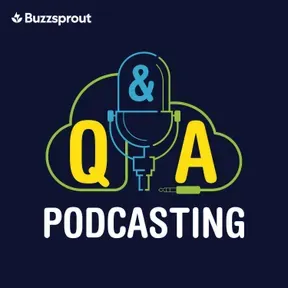

Buzzsprout
Podcasting Q&A
On Podcasting Q&A, you'll hear the best tips and strategies to launch and grow your podcast with confidence. Whether it's getting more podcast listeners, promoting your podcast on social media, or how to produce high-quality episodes in your editing software, Podcasting Q&A has everything you need to succeed. New episodes come out every Monday.
